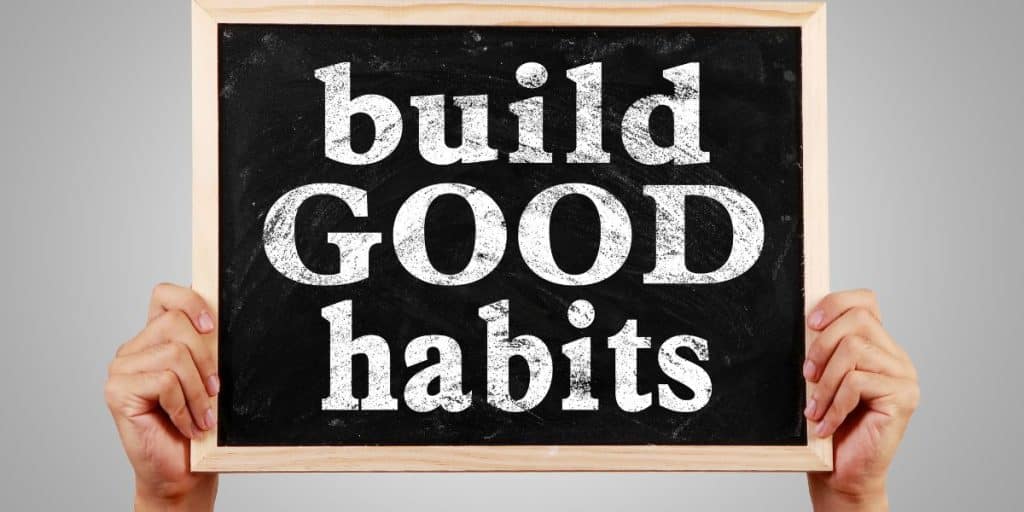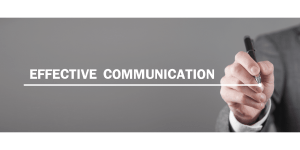Have you ever stopped to consider what your speech habits say about you? Whether you realize it or not, the way you speak can reveal a lot about your personality, background, and even your level of confidence. From using filler words like “um” and “like” to speaking too quickly or too softly, bad speech habits can be detrimental to your communication skills, both in personal and professional settings. But don’t worry, there’s hope! By identifying and correcting these habits, you can improve your speaking skills and present yourself in a more confident and effective manner. In this article, we’ll explore some of the most common bad speech habits and provide tips on how to overcome them. So, let’s get started and discover how you can become a more effective communicator.
The impact of speech habits on communication
Before we dive into the specifics of bad speech habits and how to correct them, it’s important to understand the impact these habits can have on your communication skills. Your speech habits can greatly affect how others perceive you, and can even impact your own self-esteem and confidence. For example, if you use a lot of filler words like “um” and “like,” you may come across as uncertain or unprepared. Speaking too quickly can make it difficult for others to understand you, while speaking too softly can make you seem timid or unconfident.
In addition to affecting how others perceive you, bad speech habits can also impact your own self-image. If you struggle with speech habits like stuttering or stumbling over your words, you may feel self-conscious or embarrassed when speaking in front of others. This can lead to a lack of confidence and a fear of public speaking, which can hold you back in both your personal and professional life.
Common bad speech habits
Now that we’ve established the importance of good speech habits, let’s take a look at some of the most common bad speech habits and how they can impact your communication skills.
Filler words
Filler words are words or sounds that people use to fill pauses or gaps in their speech. Examples of filler words include “um,” “ah,” “like,” and “you know.” While it’s natural to use filler words occasionally, using them too frequently can make you seem hesitant or unprepared.
Speaking too quickly
Speaking too quickly can make it difficult for others to understand you. It can also make you seem nervous or unconfident. When you speak quickly, you may also be more likely to stumble over your words or use filler words.
Speaking too softly
Speaking too softly can also make it difficult for others to understand you. It can make you seem timid or unconfident, and can even make it seem like you lack conviction in what you’re saying.
Monotone voice
A monotone voice is a voice that lacks variation in pitch and tone. Speaking in a monotone voice can make it difficult for others to stay engaged in what you’re saying. It can also make you seem disinterested or unenthusiastic about the topic you’re discussing.
Stuttering
Stuttering is a speech disorder that involves repeating or prolonging sounds, syllables, or words. Stuttering can make it difficult for others to understand you, and can also make you feel self-conscious or embarrassed when speaking in front of others.
How to identify your speech habits
Now that we’ve identified some of the most common bad speech habits, it’s time to take a look at how you can identify your own speech habits. One of the best ways to identify your speech habits is to record yourself speaking. You can use your smartphone or computer to record yourself having a conversation or giving a presentation.
As you listen to the recording, pay attention to any filler words you use, how quickly you speak, and the tone and pitch of your voice. You may also want to ask a trusted friend or colleague to listen to the recording and provide feedback.
Another way to identify your speech habits is to pay attention to how others react when you speak. Do they seem engaged and interested, or do they seem bored or disinterested? Do they ask you to repeat yourself or clarify what you’re saying? These reactions can be indicators of bad speech habits that you may need to work on.
Tips for correcting bad speech habits
Now that you’ve identified your bad speech habits, it’s time to start working on correcting them. Here are some tips to help you improve your speech habits:
Practice, practice, practice
One of the best ways to improve your speech habits is to practice speaking. Whether it’s in front of a mirror or with a friend, practicing your speaking skills can help you become more comfortable and confident when speaking in public.
Slow down
If you tend to speak too quickly, try slowing down your speech. Take your time when speaking, and pause between sentences to give yourself time to gather your thoughts.
Use pauses instead of filler words
Instead of using filler words like “um” and “like,” try using pauses instead. This will give you time to gather your thoughts and will help you sound more confident and prepared.
Speak up
If you tend to speak too softly, try speaking up. Make sure you’re projecting your voice and speaking clearly so that others can hear and understand you.
Vary your pitch and tone
If you speak in a monotone voice, try varying your pitch and tone to keep your audience engaged. Use inflection to emphasize important points and to add interest to your speech.
Seek professional help
If you struggle with speech habits like stuttering or mumbling, you may want to seek professional help. A speech therapist can help you identify the root cause of your speech habits and provide you with exercises and techniques to improve your speech.
Exercises to improve speech habits
In addition to practicing your speaking skills, there are several exercises you can do to improve your speech habits. Here are a few to try:
Tongue twisters
Tongue twisters are phrases that are difficult to say quickly and accurately. Practicing tongue twisters can help you improve your diction and enunciation.
Breathing exercises
Breathing exercises can help you control your breathing when speaking, which can improve the clarity and quality of your speech.
Reading aloud
Reading aloud can help you improve your pacing and enunciation. Try reading a book or article out loud, focusing on speaking clearly and with good pacing.
The importance of feedback in correcting speech habits
Finally, it’s important to seek feedback from others when working on improving your speech habits. Ask friends, family members, or colleagues to listen to your speeches or presentations and provide feedback on your speaking skills.
You may also want to consider joining a public speaking group or taking a public speaking class. These groups and classes can provide you with valuable feedback, as well as opportunities to practice your speaking skills in a supportive environment.
Resources for improving speech habits
If you’re looking for additional resources to help you improve your speech habits, there are several books, websites, and online courses available. Here are a few to check out:
- “The Art of Public Speaking” by Dale Carnegie
- “Speak with Confidence: A Practical Guide” by Albert J. Vasile
- Toastmasters International
- Udemy public speaking courses
Conclusion and the benefits of improving speech habits
In conclusion, bad speech habits can greatly impact your communication skills and your self-confidence. By identifying and correcting these habits, you can become a more effective communicator and present yourself in a confident and professional manner.
Whether you’re looking to improve your personal relationships, advance your career, or simply become a more effective speaker, improving your speech habits is a valuable skill that can benefit you in many areas of your life. So, start practicing today and take the first step towards becoming a more confident and effective communicator!











